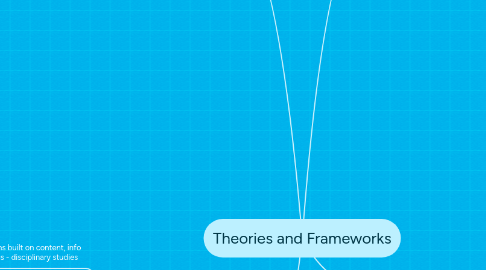
1. SAMR
1.1. aims to define the impact of a technology on a task
1.2. models the effective integration of technology
1.3. progresses with the impact a technology has on student engagement during learning and teaching
1.3.1. incorporting technology may enhance the task to be simpler, more efficient etc.
1.3.1.1. subsitution
1.3.1.1.1. no additional enhancement has been contributed to the task
1.3.1.1.2. ex. sharing a PowerPoint online instead of printing out copies
1.3.1.2. augmentation
1.3.1.2.1. technology improves the task
1.3.1.2.2. ex. using clickers in a polling
1.3.2. introducing technology may transform the task with new capabilitys
1.3.2.1. modification
1.3.2.1.1. technology transforms the original task
1.3.2.1.2. ex. using twitter for a Q & A
1.3.2.2. redifinition
1.3.2.2.1. new options are made possible by technology that reshape the original task
1.3.2.2.2. ex. using skype to connect with students and teachers in real time
2. TPACK
2.1. defines the three kinds of knowledge teachers base their philosophy on
2.1.1. teachers must teach the curriculam, concept knowledge and text
2.1.2. teachers will use pedagogical knowledge to best engage, inspire and adapt the lesson
2.1.3. technological tools are a asset when collaborated with concept and pedagogical knowledge
2.2. aims to connect the three kinds of knowledge involved when fusing technology with pedagogical and content knowledge
2.2.1. Technological Pedagogical Knowledge
2.2.2. Technological Content Knowledge
2.2.3. Pedagogical Content Knowledge
2.2.4. Technological Pedagogical Content Knowledge
